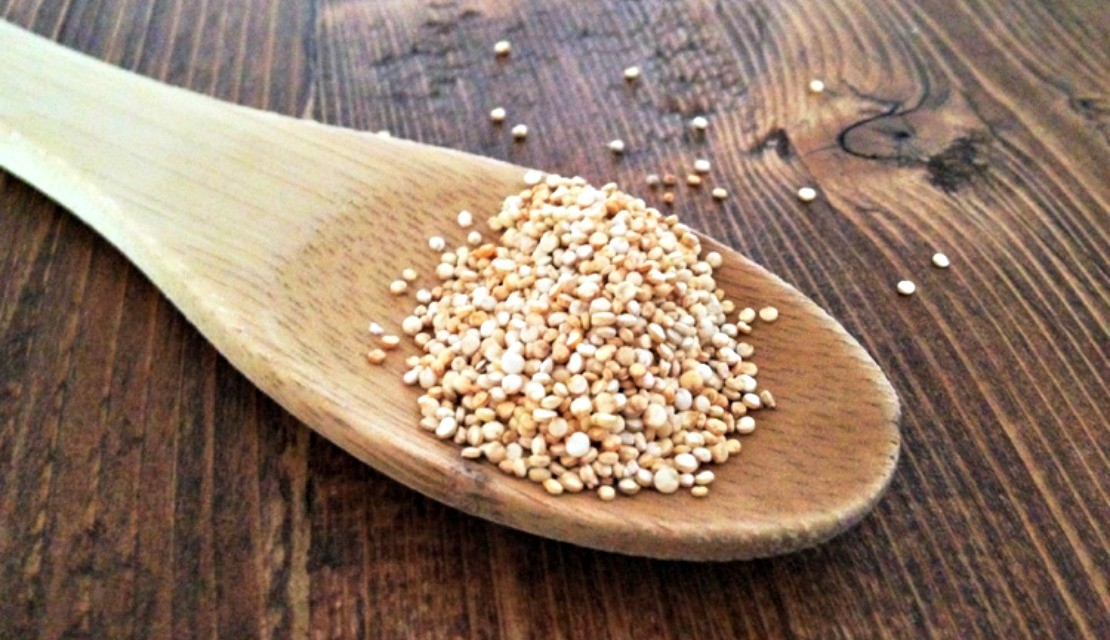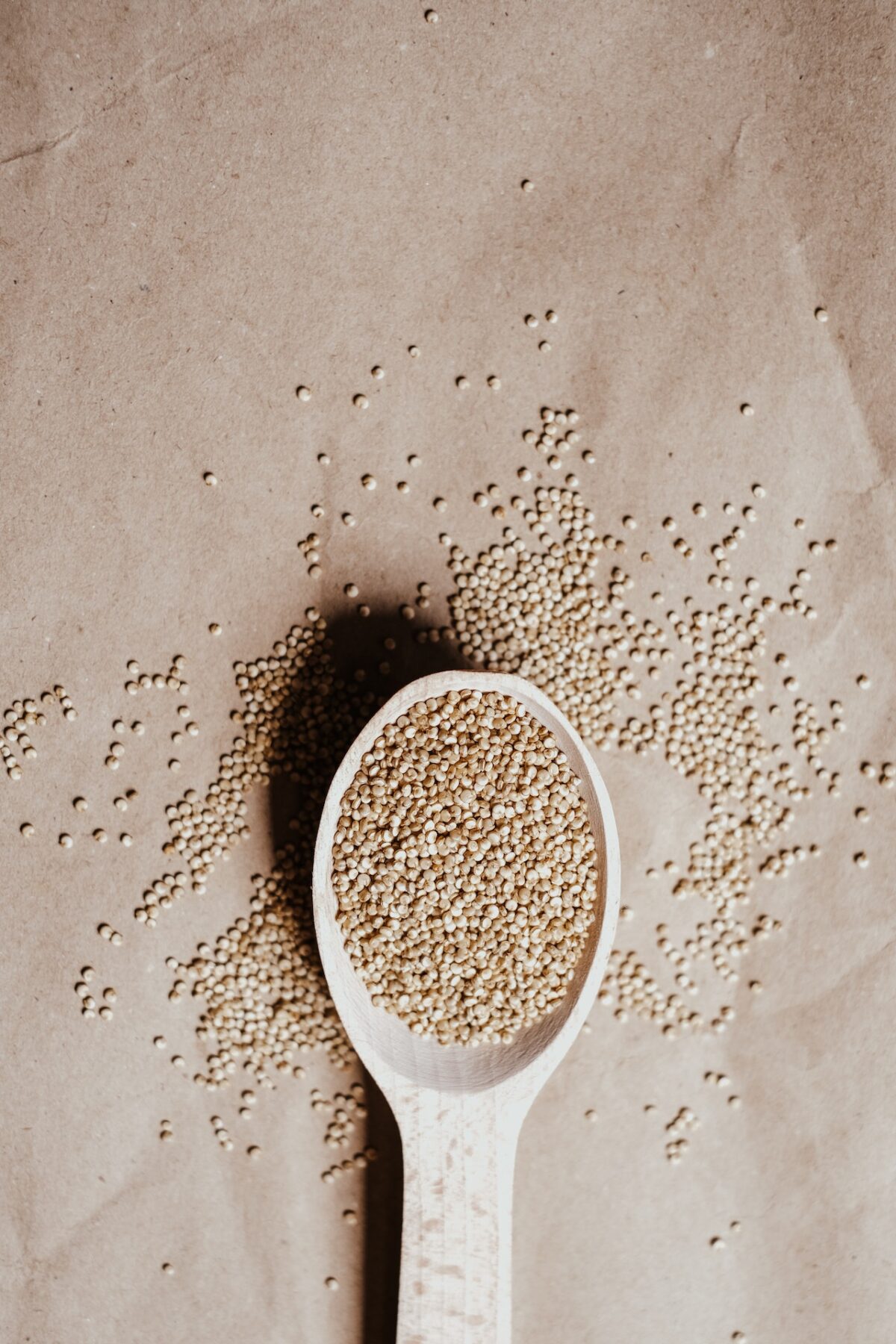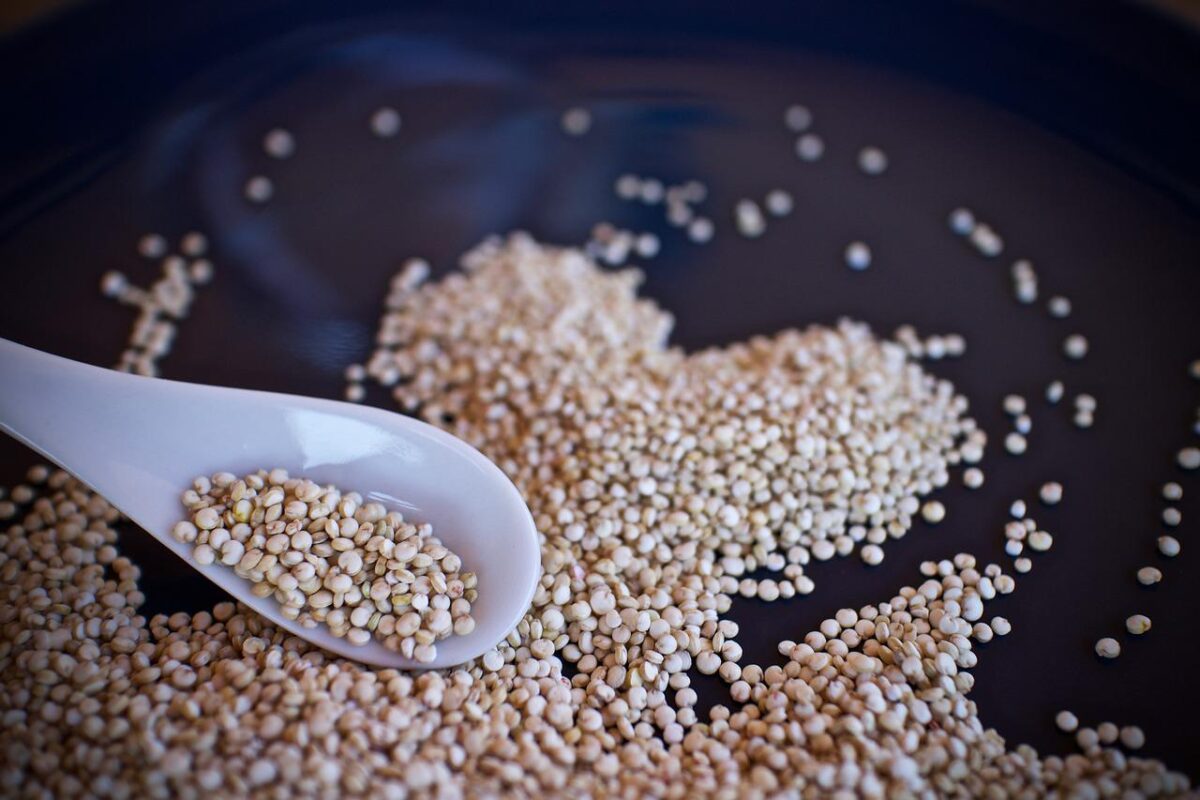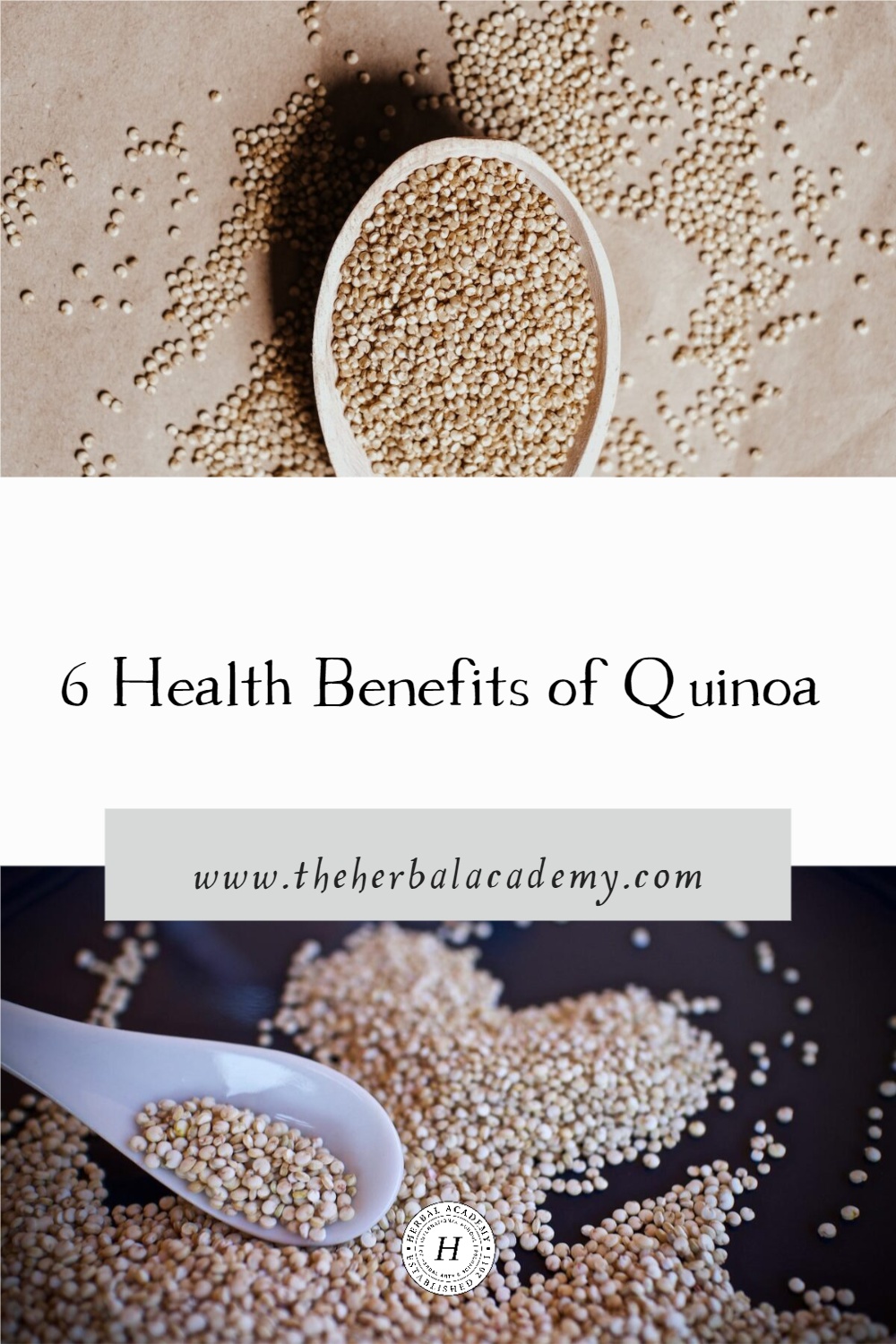
6 Health Benefits of Quinoa
Quinoa is a seed that has been cultivated in the Andes mountains of South America for over 5,000 years. One of the benefits of quinoa is unique in that it contains more high quality protein than any other seed or grain. In fact, quinoa is the only vegetable source recognized by the UN Food Association as a complete protein because it contains all of the essential amino acids.
Quinoa has numerous health benefits. It’s a good source of dietary fiber, phosphorous, magnesium, and iron and is quick and easy to prepare. Quinoa is a wonderful ingredient to use in both sweet and savory dishes. You can serve quinoa as a high-protein breakfast food mixed with honey, almonds, or berries, for a healthy and great-tasting meal. You can even make quinoa chili – simply toss it into your favorite chili recipe.
Quinoa has a light, fluffy texture when cooked and a slightly nutty flavor, making it an excellent alternative to white rice or couscous. The seeds are covered with saponin, a resin-like substance that is extremely bitter and forms a soapy solution in water. The saponin should be removed by rinsing quinoa prior to cooking.

Quinoa Health Benefits
Quinoa has many nutritional benefits when eaten as a part of a healthy diet. Because quinoa contains 4 milligrams of iron per serving, it helps provide this essential mineral that is needed by the body. With 4 grams of fiber per serving, quinoa can also aid those prone to heart disease, stroke, and high cholesterol. Here are some of its other benefits.
Migraine Support
If you deal with migraines, quinoa may offer a natural solution. Quinoa is a very good source of magnesium, the mineral that helps relax blood vessels, which prevents the constriction and rebound dilation properties of migraines.
Quinoa is also a good source of riboflavin, the vitamin necessary for proper energy production within cells. Riboflavin has also been shown to help reduce the frequency of attacks in those who experience migraines. This is most likely due to the improved energy metabolism within brain and muscle cells.
Improved Cardiovascular Health
Magnesium also benefits cardiovascular health. Those who do not consume the proper amounts of magnesium have increased rates of hypertension, ischemic heart disease, and heart arrhythmia. Because quinoa is a good source of magnesium, it also benefits cardiovascular health.

PMS Support
An increasing amount of evidence is showing that premenstrual syndrome (PMS) might be caused in large part by dietary deficiencies in certain vitamins and minerals, especially magnesium.
According to Murray & Pizzorno, 1997, “Magnesium deficiency is strongly implicated as a causative factor in premenstrual syndrome. Red blood cell magnesium levels in PMS patients have been shown to be significantly lower than in normal subjects.” King et al. (2005) also determined that magnesium deficiency has been associated with PMS alone or in combination with inadequate levels of zinc, linolenic acid, and B vitamins.
Because quinoa is a good source of magnesium, it is an excellent food to add to the diet in order to decrease the discomforts of PMS. Magnesium supplementation has also been shown to be a useful way of easing PMS (Murray & Pizzorno, 1997).
Avoiding Gallstones
Eating foods high in insoluble fiber, such as quinoa, may be helpful in avoiding development of gallstones (Tsai et al., 2004). By studying a group of 69,778 women, researchers found that those consuming the most fiber (soluble and insoluble) had a 13% lower risk of developing gallstones compared to women consuming a low-fiber diet. Those eating the most foods rich in insoluble fiber proved to be even more protected against gallstones, with a 17% lower risk.
Researchers believe insoluble fiber speeds intestinal travel time (how quickly food moves through the intestines) and reduces the secretion of bile acids, which contribute to gallstone formation (Tsai et al., 2004).
Decreased Risk of Type 2 Diabetes
Research suggests that regular consumption of whole grains reduces the risk of type 2 diabetes (Ranilla et al, 2009).One way that blood sugar levels are kept within a healthy range is by eating a diet that is high in protein and fiber. There are 5 grams of fiber and 8 grams of protein in a cup of cooked quinoa (“The Nutrition Source: Quinoa”, n.d.). This super grain is a rich source of both fiber and protein and is an excellent part of a nutritional therapy protocol for those who wish to lessen their likelihood of developing type 2 diabetes.
Quinoa offers a range of health benefits from PMS and migraine support to better cardiovascular health and less risk of gallstones and type 2 diabetes. Convinced that you would like to include quinoa in your diet? This easily prepared, delicious whole grain is widely available at most grocery stores and is an enjoyable side or meal ingredient.
Sarah Williams is an avid lifestyle blogger who is passionate about self-development, health, and nutrition. She is committed to helping others heal themselves through nutrition and the mind. Check out her blog to get free access to her tips and other online motivational resources.

REFERENCES
The Nutrition Source: Quinoa. (n.d.). Harvard School of Public Health. https://www.hsph.harvard.edu/nutritionsource/food-features/quinoa/
King, D.E., Mainous, A.G., Geesey, M.E., & Woolson, R.F. (2005). Dietary magnesium and C-reactive protein levels. Journal of the American College of Nutrition, 24(3), 166-171.
Murray, M. T., & Pizzorno, J. (1997). Encyclopedia of natural medicine. Three Rivers Press.
Ranilla, L.G., Apostolidis, E., Genovese, M.I., Lajolo, F.M., & Shetty, K. (2009). Evaluation of indigenous grains from the Peruvian Andean region for antidiabetes and antihypertension potential using in vitro methods. Journal of medicinal food, 12(4), 704-713. https://doi.org/10.1089/jmf.2008.0122
Tsai, C.J., Leitzmann, M.F., Willett W.C., & Giovannucci E.L. (2004). Long-term intake of dietary fiber and decreased risk of cholecystectomy in women. American Journal of Gastroenterology, 99(7), 1364-1370.








